
Written by Dr. Eric Perry Image Credit: Pixabay “I have written 11 books but each time I think ‘Uh-oh, they’re going to find out now. I’ve run a game…
How to Identify & Overcome Imposter Syndrome


Written by Dr. Eric Perry Image Credit: Pixabay “I have written 11 books but each time I think ‘Uh-oh, they’re going to find out now. I’ve run a game…
How to Identify & Overcome Imposter Syndrome
“TRAYVON MARTIN“
Didn’t live to vote! He was only 17 years old.
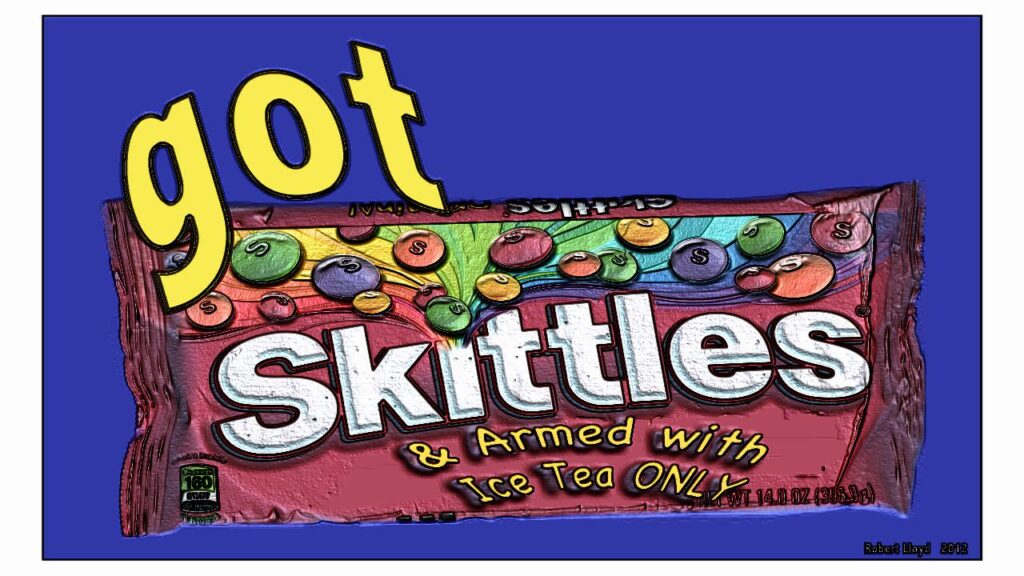
You got a lot more. “You Can Vote” If You Are 18 Or Older
About the only thing that everyone agrees on is what Trayvon Martin was carrying when he died. There were his clothes, including a black hooded top with a badge pinned to it showing a picture of his dead cousin. There was his cellphone, on which he had been talking to a friend. In his pockets were a cigarette lighter, some earphones, a can of Arizona watermelon fruit juice cocktail, a little over US$40 in cash, a bag of Skittles he had just bought from a nearby 7-Eleven, and no weapon of any kind.
Whether or not you believe George Zimmerman, the neighbourhood-watch co-ordinator who says he shot Martin in self-defence, these do not sound like instruments of burglary. Indeed, the Skittles especially, with their bright playground colours and “Taste the Rainbow” slogan, have become a symbol of Martin’s innocence. He may have been suspended from school at the time, and had traces of cannabis in his blood, but when you look behind the appearance of a menacing black teenager, those Skittles say, you find the child inside.
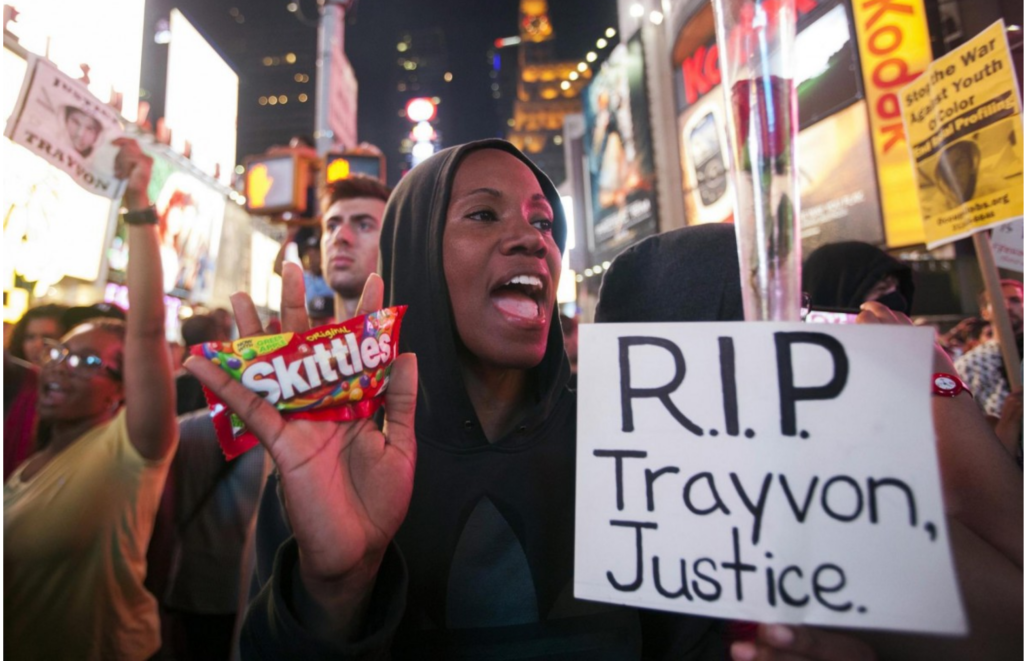
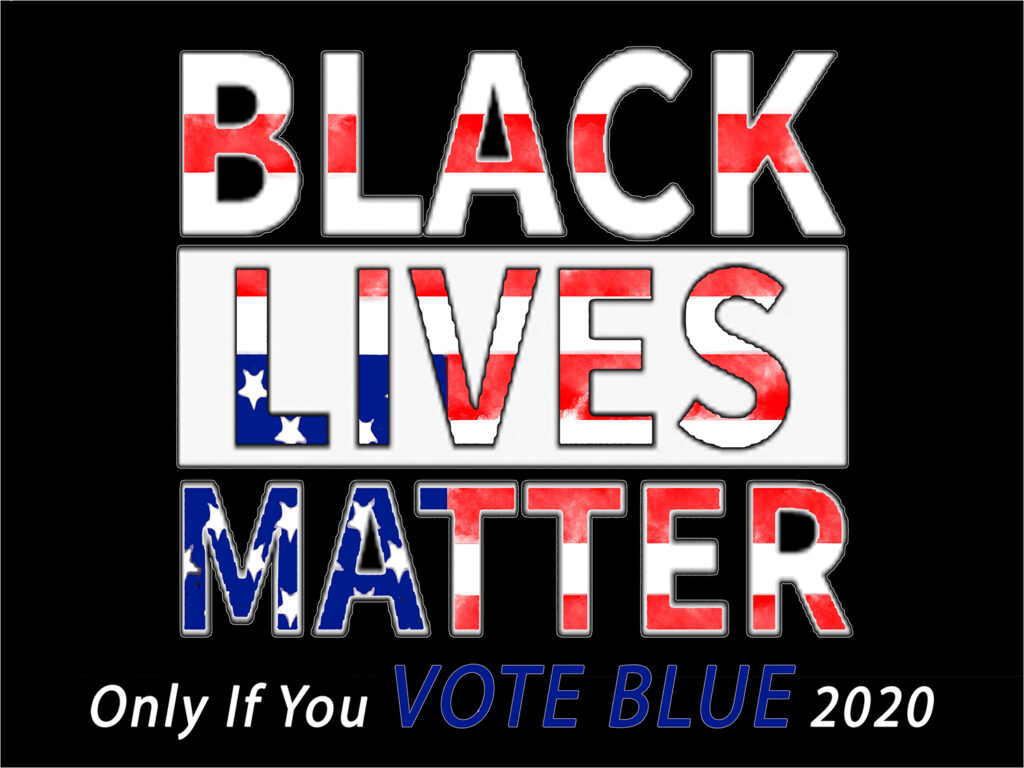

Voting is the essence of democracy. Voting in the United States is voluntary. Some people vote in person at the polls, while others vote by mail days or weeks before the actual election date. Regardless of how you do it, it’s important that all U.S. citizens who qualify participate in the democratic process of electing public officials.
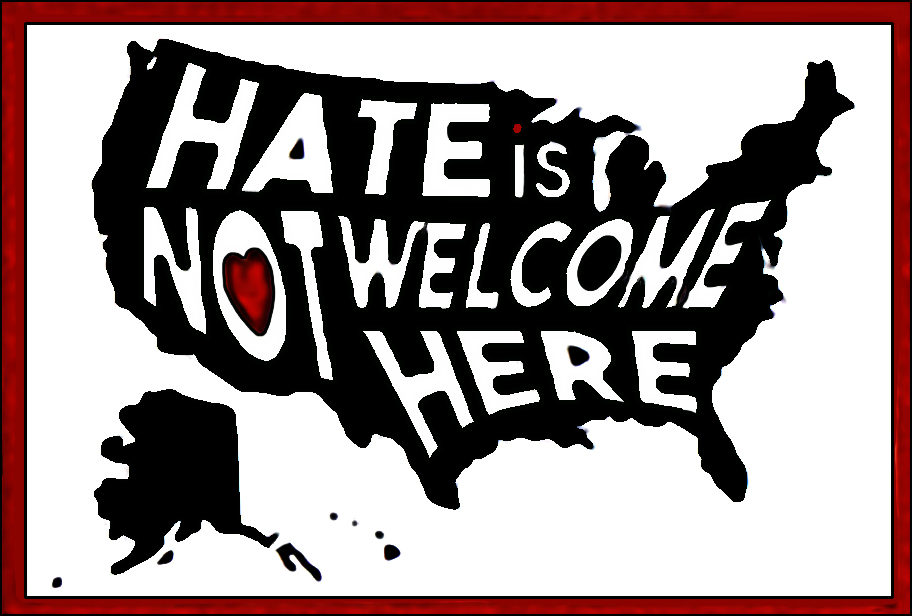
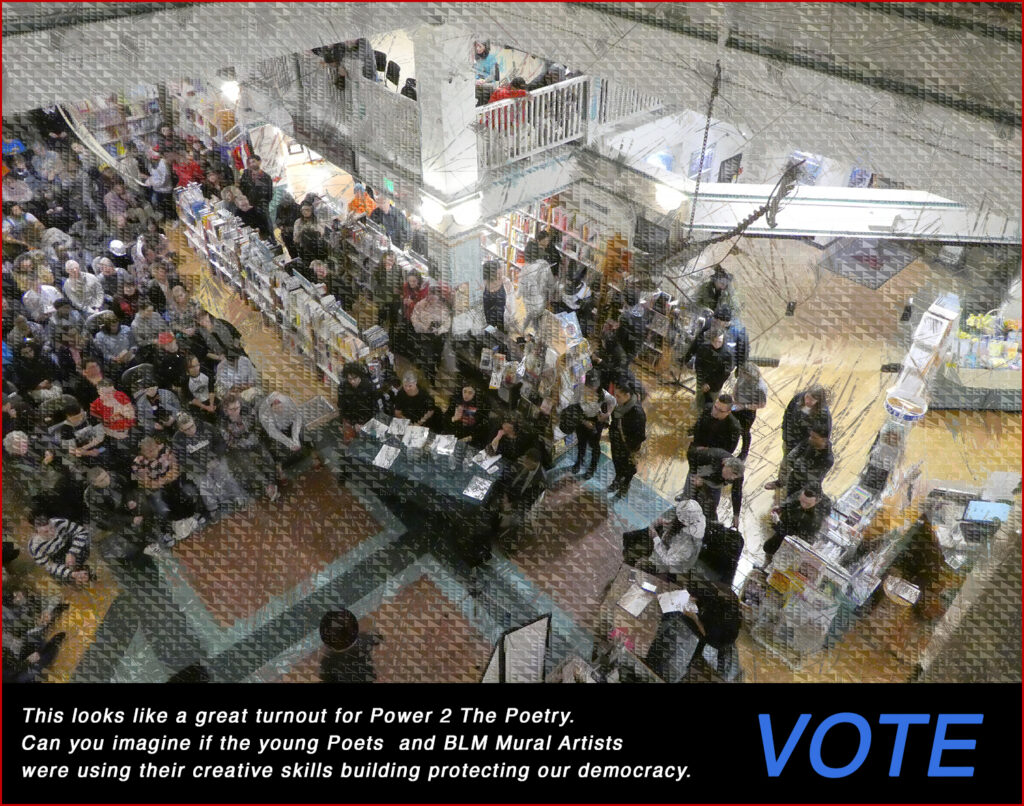

Voting is the essence of democracy. Voting in the United States is voluntary. Some people vote in person at the polls, while others vote by mail days or weeks before the actual election date. Regardless of how you do it, it’s important that all U.S. citizens who qualify participate in the democratic process of electing public officials.
Key dates and deadlines: Election day is Nov. 3
Registration deadlines: Online: Oct. 26, By mail: Received by Oct. 26, In person: Nov. 3
Absentee ballot deadlines: Return by mail: Postmarked by Nov. 3, Return in person: Nov. 3 by 8:00 p.m.
Early voting: Oct. 16 – Nov. 3, but dates and hours may vary based on where you live
Additional information
The deadline to update an existing voter registration with a new name or address is Monday, October 26, 2020
For detailed information visit the voter information page for Washington State.
Washington offers online voter registration.
You should know: you need a Washington driver’s license or state ID to use Washington’s online voter registration system. If you don’t have a Washington-issued ID, you can still register by mail to vote.
You can register online to vote until Monday, October 26, 2020. You can also update an existing voter registration online with a new name or address by Monday, October 26, 2020.
You can also register to vote using the Washington voter registration form. Be sure to read the instructions carefully and fill it out completely. Send the completed form to your local election official.
To register by mail, the form must be received by Monday, October 26, 2020. You can also update an existing voter registration by mail with a new name or address by Monday, October 26, 2020.
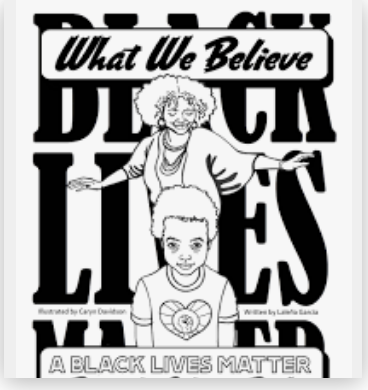
By Ramiro Nikodemus Alexander-Duchesne
Earlier this month, rapper and activist Killer Mike released a Netflix Original, titled Trigger Warning with Killer Mike. Killer Mike is half of the rapping duo, Run the Jewels. In his Netflix Original docu-series, he addresses topics of racism, classism, sexism, etc. His first episode, Living Black, consisted of a social experiment of sorts. For three days prior to his show in Athens, Georgia, Killer Mike sets out on a self-appointed quest to live completely Black.
Three days prior to his show in Athens, Georgia, Michael Santiago Render (Killer Mike) set out on his quest to conduct business solely with Black-owned businesses. Vikram Gandhi, director of the series, told Killer Mike that his endeavor would be an impossible one. Killer Mike did not allow that to stop him.
While attempting to live completely Black–meaning only spending his money with Black-owned businesses and vendors–Killer Mike came to the Black economic experts. Early on in the episode, Killer Mike consulted with We Buy Black’s very own founder, Shareef Abdul-Malik. During their meeting, Abdul-Malik presented a number of Black-owned products that are currently selling on We Buy Black to Killer Mike. With the help of We Buy Black, Killer Mike was able to complete his mission of Living Black for three consecutive days.
The Afterword – Slate
In 2009, Maggie Anderson and her family pledged that they would patronize black-owned companies whenever possible, so she scoured the Chicago area for black-owned supermarkets, dry cleaners, gas stations, pharmacies, and clothing stores. Our Black Year: One Family’s Quest To Buy Black in America’s Racially Divided Economy is the story of their experiment in conscious consumerism. Anderson discovered that black businesses lag behind businesses of all other racial and ethnic groups in every measure of success. In the Asian community, a dollar circulates among local shop owners, banks, and business professionals for up to 28 days. In the Jewish community, a dollar circulates for 19 days. In the African-American community, a dollar is gone within six hours.
The interview runs about 29 minutes.
Do you know of other minority businesses in Spokane or online? Tell about them in the reply/post comment box below.

Tools For Social Change
This is how you can help to build the community you want to live in. Share with others. Let us know what actions YOU WILL PARTICIPATE IN. Place the line # for the actions you will take in comments.
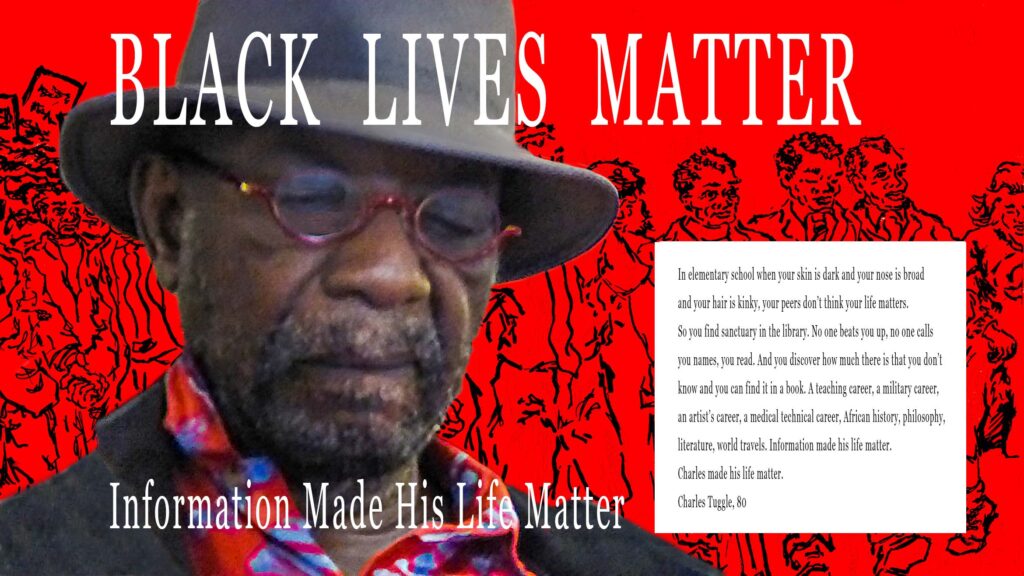
In elementary school when your skin is dark and your nose is broad and your hair is kinky, your peers don’t think your life matters. So you find sanctuary in the library. No one beats you up, no one calls you names, you read. And you discover how much there is that you don’t know and you can find it in a book. A teaching career, a military career, an artist’s career, medical technical career, African history, philosophy, literature, world travels. Information made his life matter. Charles made his life matter.
Charles Henri Tuggle, 80
Charles is part of Hunters Point Shipyard Artists in San Francisco California. Examples of his work are available here.
www.shipyardartists.com
A current exhibit of his work is available at the site of a group of 10 Black artists who are with Hunters Point Shipyard artists.
Black on Point
www.blackonpointsf.org/charles-tuggle
Two videos are available at his YouTube channel Charles H. Tuggle
https://www.youtube.com/channel/UCDk3f18Mvvb7x-6FszXping/featured